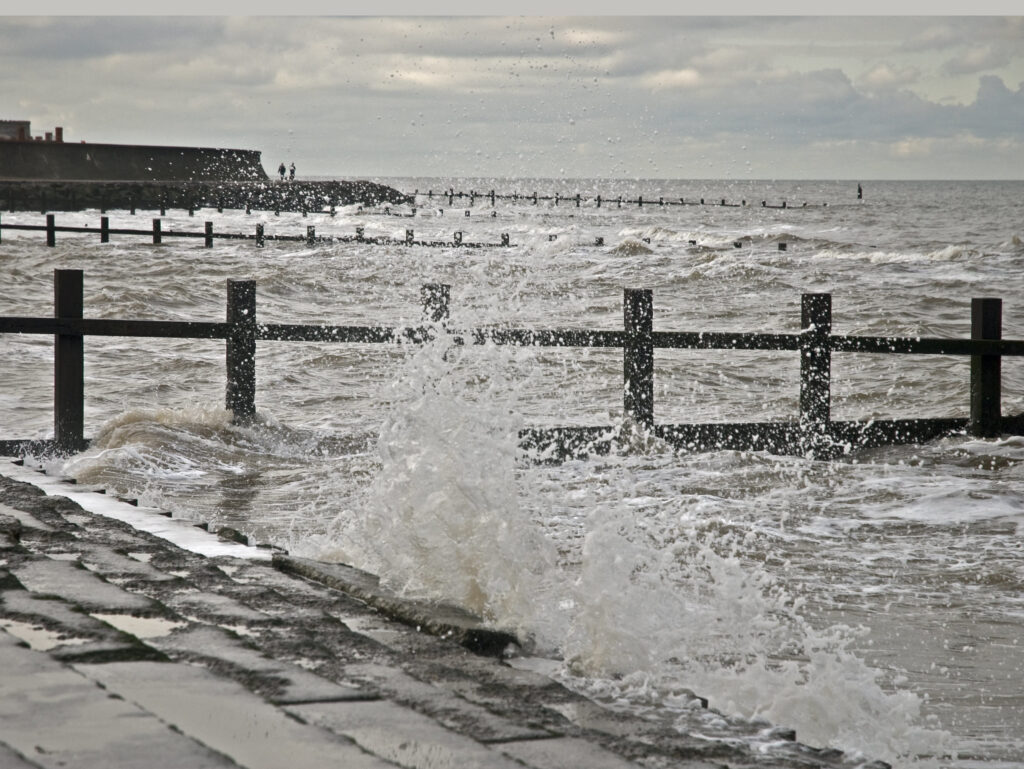Rodney Sharp looks back at the life of a Welshman who made a major contribution to winning World War II
David Rees, who has died aged 95, after a distinguished academic career as a mathematician, was one of many who had their education delayed by the onset of the second world war. His undergraduate studies at Sidney Sussex College, Cambridge, were supervised by Gordon Welchman and resulted in a very good first-class degree. By September 1939, when David was beginning postgraduate work, Welchman had been seconded to Bletchley Park, the British codebreaking centre in Buckinghamshire; soon, Welchman had recruited David, along with several other young mathematicians he also knew from Cambridge, to a team of codebreakers in Hut 6 at Bletchley Park, working on the German Enigma ciphers.
The German operators of the Enigma machines were told which three rotors and which settings to use each day, but they had to choose the starting positions of the rotors and indicate their choices via the first three letters of their first messages. John Herivel, another of Welchman’s recruits from Sidney Sussex College, predicted in February 1940 that some German operators might use short cuts that could be exploited by the Bletchley Park codebreakers.
For three months, this insight produced no result; but in May 1940 some of the German operators began to make the predicted mistakes, and David and his fellow codebreakers were able to use the technique known as the “Herivel tip” to break Enigma ciphers for some critical months from May 1940. The initial breakthrough generated roars of excitement in Hut 6, but it had to be kept secret for at least 40 years. David remarked in 2000 that “the Herivel tip was one of the seminal discoveries of the second world war”. He thought that Herivel should have received more credit.
The fourth of five children of Gertrude (nee Powell) and David Rees, David was born in Abergavenny, Monmouthsire. His father’s line had a history of both longevity and mathematical ability. David attended King Henry VIII grammar school in Abergavenny, although he was absent from school through illness for some months during his early teenage years; at those times he studied at home independently, and his mother, armed with lists from David, was one of the best customers of the Abergavenny public library.
His few months of postgraduate work in 1939, before Welchman’s knock on his door, were remarkably successful. He worked, without a supervisor but with inspiration from “wonderful lectures” by Philip Hall, on the algebraic structures known as semigroups. His first paper, published in 1940, contains a result that is now known as “the Rees theorem”.
David worked at Bletchley Park for the war’s duration. Afterwards, he became an assistant lecturer in mathematics at Manchester University, under MH (Max) Newman. For the second half of the war, Newman had been in charge of the department (“the Newmanry”) at Bletchley Park for which the first Colossus computer was constructed, to help with codebreaking. In the subsequent years, David was to collaborate with two other Bletchley Park codebreakers, JA (Sandy) Green and Peter Hilton. At Manchester, he continued to work on semigroups.
In 1948, David was appointed to a university lectureship at Cambridge and a fellowship at Downing College. Soon afterwards, his life changed dramatically following a working seminar, on André Weil‘s book The Foundations of Algebraic Geometry, organised by Douglas Northcott. First, David was so inspired by the seminar that he decided to become a commutative algebraist. Second, another participant in the seminar was Joan Cushen: David and Joan were married in 1952.
Commutative algebra can be loosely described as the algebra underlying the equations used to define curves, surfaces and higher-dimensional geometric objects. David’s first paper in commutative algebra was written, about 60 years ago, jointly with Northcott. In it, they introduced the concept of reduction of an ideal. This concept has turned out to be fundamental: even in this 21st century, hardly a conference on commutative algebra passes without there being several mentions of reductions of ideals.
David left Cambridge in 1958 to take up a chair at Exeter University, where he remained until his retirement in 1983. He carried out his duties as head of department with care and consideration. In the 1970s, the associated administrative tasks reduced the time he had available for research, but he had a burst of research activity after his retirement.
David and Northcott, both separately and jointly, published a string of significant papers in commutative algebra in the 1950s and 60s, and in so doing established that period as a golden era for commutative algebra in the UK. David was elected FRS in 1968 (Northcott had been in 1961). He was awarded the Pólya prize of the London Mathematical Society in 1993. Several mathematical concepts have been named after him, and there is no doubt that his legacy to commutative algebra will be lasting.
Joan survived him by less than two weeks. They are survived by their daughters, Mary, Rebecca, Sarah and Deborah.





I have the utmost respect for people who have the patience to tie what seems to be ‘normal’ logic in knots to encrypt and de-crypt data. It took me long enough to get to grips with the idea of x=x+1 in programming arrays! I have the attention span of a gnat these days but I would imagine encryption is addictive.
With cyber-terrorism arguably the world’s greatest threat these days, budding codebreakers of the future might like to try out their skills – you might even get a job with the British government at the end of it all…
http://www.gchq.gov.uk/Press/Pages/solve-cyber-secret.aspx
Or go straight ot the test…
https://canyoufindit.co.uk/
I was truly blessed to have had the opportunity and chance to ask the now late Professor David Rees some questions pertaining to his background via his sister, Professor Joan Rees in early 2013. It is touching indeed that I was able to communicate yet so tragic that within a month of my cherished rapport, this brilliant Welsh mathematician had passed into heaven
Here, if I may were some words expresed by me on viewing a blog by Mr Sharp on Professor David Rees’ 94th birthday;
So beautifully poignant is this touching photo-in-history to the wonderful legacy of another of Bletchley Park’s uncelebrated WW11 intellectual hero’s,……………Fellow of the Royal Society, David Rees, still with us as Professor Rees’ sister ,Joan informs me last night, 4th Feb in the year 2013
Achievements should be remembered………. believes this young Welshman;
a man’s legacy…………………..celebrated and…………………..unforgotten
yours Respectfully
Neil Ap Jones